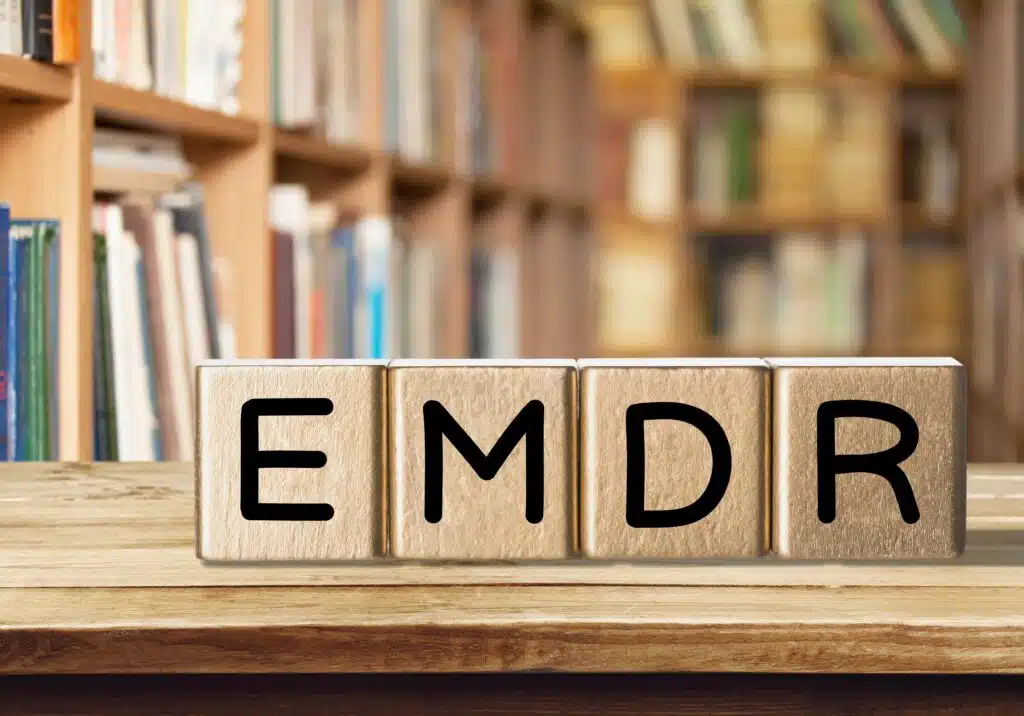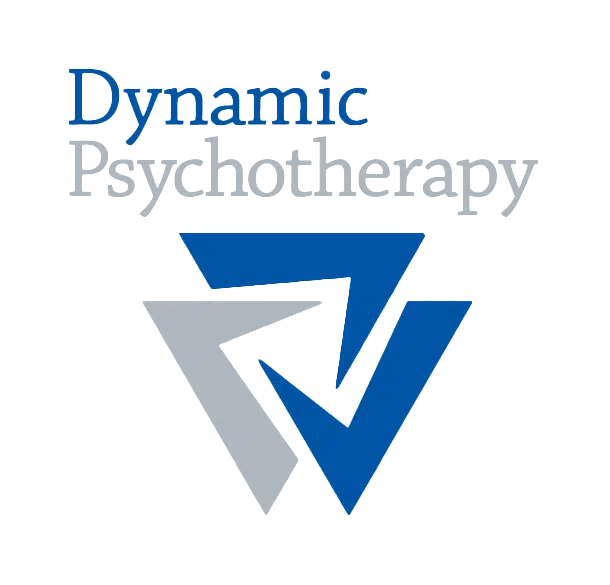EMDR Therapy: What it is and why it might be right for you

Is EMDR Therapy what you are looking for?
Let’s take a brief look at what EMDR Therapy is and what conditions we treat with this approach.
What is EMDR Therapy?
Eye Movement Desensitisation and Reprocessing Therapy, widely referred to as EMDR, is a therapeutic approach used in the treatment of various mental health issues, primarily psychological conditions stemming from past traumatic experiences.
While it is best known for its effectiveness in treating Post-Traumatic Stress Disorder (PTSD), its application has broadened to encompass a variety of other mental health issues, including anxiety and depression.
Who do we treat with EMDR Therapy?
Our EMDR Therapists treat adults and adolescents aged 12 and above.
What do we treat with EMDR Therapy?
Post-Traumatic Stress Disorder (PTSD):
- Processes and integrates traumatic memories, allowing traumatic experiences to be recalled as a distant past event, rather than experiencing the memory as something happening in the present, i.e., stuck reliving the trauma.
- Reduces the intensity of PTSD symptoms like intrusive memories & flashbacks, self-blaming thinking patterns, hypervigilance, nightmares, and anxiety.
- Desensitises individuals to traumatic triggers in their day-to-day life.
- Facilitates the development of coping strategies to manage stress and trauma-related responses such as distressing intrusive memories.
Complex Post-Traumatic Stress Disorder (C-PTSD):
- Addresses prolonged and repeated trauma, often from childhood experiences.
- Works on deep-seated emotional pain and attachment issues.
- Assists in processing multiple layers of trauma and its impact on personality and behaviour.
- Aims to rebuild a sense of safety and trust in the world.
- Helps in the development of a positive self-concept and the rebuilding of healthy relationships.
Other issues EMDR Therapy is commonly used for:
- Anxiety and Panic Disorders: EMDR can help alleviate the symptoms of anxiety and panic, particularly when these are linked to past traumatic events.
- Depression: Especially in cases where depression is connected to traumatic experiences, EMDR has emerging evidence in its effective treatment.
- Eating Disorders: In some instances, eating disorders are associated with past trauma, and EMDR can be a part of the treatment plan.
- Grief and Loss: EMDR can assist individuals struggling with grief or complex emotions stemming from significant loss or bereavement, particularly in the context of traumatic & complex grief.
- Phobias: EMDR can be used to address fears and phobias, particularly if these are rooted in traumatic experiences.
- Childhood Trauma and Abuse: EMDR is also used to treat adults who have experienced trauma and abuse during childhood.
- Chronic Pain and Somatic Disorders: There is growing evidence supporting the use of EMDR in the treatment of chronic pain and somatic disorders, especially when these conditions have a psychophysiological component.
- Addiction and Substance Abuse: EMDR therapy can be incorporated into treatment programs for addiction, particularly when substance abuse is linked to traumatic experiences.
How long does EMDR Therapy take?
Usually 3-12 sessions.
EMDR is a multiphase comprehensive therapy framework rather than a specific therapeutic technique, with the early phases of treatment focussed on capacity building to ensure individuals are ready to work through past traumatic experiences.
The total number of EMDR sessions needed can therefore differ significantly. Some individuals may require minimal preparation before moving through the phases of reprocessing traumatic memories, experience improvement within just a few sessions, especially if treating a single-event trauma.
More complex and deep-rooted issues, such as prolonged childhood trauma or complex PTSD, may require a longer treatment period, spanning several months or even longer.
Meet Our Team of EMDR Therapists at Dynamic Psychotherapy
At Dynamic Psychotherapy, we believe that the cornerstone of effective treatment is skilled and compassionate professionals. Our EMDR therapists are not only certified in the latest EMDR techniques but also bring a wealth of experience and expertise to the table. Meet the practitioners who are here to guide you on your journey to mental well-being.
Click on an EMDR therapist to view more

David Temme
David is a seasoned therapist with a strong focus on EMDR Therapy. His extensive training and hands-on experience make him an expert in treating a wide range of mental health conditions, including PTSD and anxiety disorders. David’s empathetic approach ensures that you feel comfortable and supported throughout your treatment journey.
Specialisations:
David specialises in providing treatment for symptoms of trauma, depression, anxiety, PTSD, borderline personality and other personality disorders with EMDR and Schema Therapy
Approach:
EMDR Therapy, Schema Therapy, Behavioural Therapies, Psychodynamic Therapy & CBT
Qualifications:
Social Worker And Psychotherapist

Susanna Sibillin
Susanna is passionate about helping individuals reclaim their lives from the grip of mental health conditions. Her expertise in EMDR Therapy is complemented by her warm and nurturing demeanour, creating a safe space for you to explore and heal. Susanna specialises in treating conditions like depression and phobias, employing EMDR techniques that offer lasting relief.
Specialisations:
Interpersonal Difficulties, Trauma (including childhood trauma and family violence), Addiction & Eating Disorders
Approach:
EMDR Therapy, Schema Therapy, DBT, CBT & ACT
Qualifications:
MPsych(Clin), MSW, PGDip
Book Now or Learn More
Submit an intake form below or keep reading for a detailed overview of EMDR Therapy.
- EMDR Therapy: What it is and why it might be right for you
- Is EMDR Therapy what you are looking for?
- Meet Our Team of EMDR Therapists at Dynamic Psychotherapy
- Click on an EMDR therapist to view more
- EMDR Therapy: A Detailed Overview
- The Science Behind EMDR Therapy: More Than Just Eye Movements
- Specialised Applications of EMDR Therapy: Beyond PTSD
- Integration with Other Therapies: A Holistic Approach to Mental Health
- What to Expect in an EMDR Therapy Session: Your Journey to Healing
- Getting Started with EMDR Therapy at Dynamic Psychotherapy Melbourne
- Frequently Asked Questions About EMDR Therapy
- Additional Resources for EMDR Therapy
- Conclusion: EMDR Therapy
- Request an Appointment
EMDR Therapy: A Detailed Overview
EMDR Therapy, or Eye Movement Desensitisation and Reprocessing Therapy, is a innovative treatment that has rapidly grown into the field of mental health. Developed initially for Post-Traumatic Stress Disorder (PTSD), EMDR Therapy has expanded its scope to treat a variety of conditions, including anxiety, depression, and more.
At Dynamic Psychotherapy Melbourne, many of our experienced therapists offer EMDR to help you reclaim your mental well-being.
Why Consider EMDR Therapy?
If you’ve been struggling with traumatic experiences or chronic stress, EMDR Therapy offers a unique approach that targets the root cause of your distress, aiming to facilitate rapid and lasting recovery. Given the nature of its approach,
EMDR also does not require prolonged contact with the intrusive memories and can often be implemented without the need to reveal great amounts of detail of the memories to the therapist, which may facilitate a less confronting approach than other treatment approaches.
What Will You Learn Here?
This article covers what EMDR Therapy is, how it differs from other forms of therapy, and who can benefit from it. We’ll delve into specialised topics like EMDR Therapy for OCD, EMDR Therapy for PTSD, and EMDR Therapy for trauma, providing you with the information you need to make an informed decision about your mental health treatment options.
The Science Behind EMDR Therapy: More Than Just Eye Movements
The Role of Bilateral Stimulation
One of the unique aspects of EMDR Therapy is the use of bilateral stimulation, typically in the form of guided eye movements. While the exact mechanism through which Bilateral Stimulation works is still uncertain, one of the leading hypotheses is the Working Memory Theory.
This theory suggests that when you recall a memory, it is held temporarily within conscious awareness (working memory), where, by keeping the memory in mind while simultaneously engaging in bilateral stimulation, these dual tasks “overload” the capacity of working memory (a bit like the difficulty everyone experiences when trying to read a book while someone behind you is talking).
By dividing your attention between the bilateral stimulation (e.g., eye movements) and the memory, these competing demands on the limited capacity of your short-term memory, result in the memory deteriorating, becoming less vivid, where it is then stored in this less vivid form, and subsequently recalled in this less disturbing way in future.
Individuals often describe their traumatic memories after bilateral processing as being experienced as less vivid, duller around the edges, less immersive, “further away”, or as having less detail.
However, it’s essential to note that EMDR is not solely a technique or just about eye movements; it’s a comprehensive approach that involves preparation, assessment, and targeted intervention.
EMDR Therapy for Various Conditions
While EMDR Therapy gained recognition for its effectiveness in treating PTSD, its applications have expanded. It’s now used for a range of mental health conditions, including anxiety, phobias, addiction, pain conditions and more.
Specialised protocols have also been developed for treating conditions like OCD, dissociation, addiction, and complex trauma, making EMDR a versatile approach in the treatment of mental health issues.
EMDR Training and Certification
At Dynamic Psychotherapy, our therapists have completed formal accredited EMDR training, and continue to engage in ongoing learning to ensure they remain informed by the latest research developments and treatment protocols.
This commitment to continually refining the treatment offered strives to ensure that you receive a high quality of care during your EMDR treatment sessions.
Scientific Studies Supporting EMDR
EMDR Therapy is backed by a large evidence base of scientific research that demonstrates its effectiveness in treating various mental health conditions.
These studies provide empirical evidence that validates the Adaptive Information Processing (AIP) model, which is the foundation of EMDR Therapy.
The evidence base backing EMDR’s effectiveness has led to the Australian Psychological Society (APS) classifying EMDR as a “Level 1 Treatment” for PTSD, the highest rating that can be applied to an individual therapy framework.
Specialised Applications of EMDR Therapy: Beyond PTSD
EMDR Therapy for OCD
Obsessive-Compulsive Disorder (OCD) can be debilitating, affecting every aspect of your life.
EMDR Therapy has emerging evidence as an effective and viable treatment of OCD, not only as a means of successfully resisting compulsions and desensitising you to OCD triggers, but in offering a targeted approach to treat the underlying trauma that may be fuelling OCD symptoms.
Through this specific treatment protocol, treatment aims to provide you with significant relief and to regain control over your life.
EMDR Therapy for PTSD
Post-Traumatic Stress Disorder (PTSD) is where EMDR Therapy initially emerged as an effective and novel treatment. The treatment is highly effective in helping individuals process traumatic events, reducing symptoms like flashbacks, nightmares, and severe anxiety.
At Dynamic Psychotherapy, our EMDR therapists are skilled in providing trauma informed treatment for PTSD, working with you collaboratively toward a path to recovery.
EMDR Therapy for Trauma
Trauma can manifest in various forms and affect people differently. EMDR Therapy provides a flexible framework to address the unique needs of those dealing with trauma. Whether it’s a single incident or chronic exposure to traumatic events, EMDR can help you process these experiences and move towards healing.
EMDR Therapy for Anxiety
Anxiety disorders can severely impact your quality of life, making even simple tasks seem overwhelming. EMDR Therapy offers a new avenue for treating anxiety by focusing on the distressing memories that trigger anxiety symptoms, while also addressing triggers for anxiety in the present, as well as feared future events (e.g., fear of flying, or giving a public speech at work). This approach allows for an in-depth resolution, reducing or even eliminating anxiety in some cases.
EMDR Therapy for Depression
Depression is more than just feeling sad; it’s a complex mental health condition that can be paralysing. EMDR Therapy has growing evidence for its applicability in the treatment of depression in those with and without PTSD.
EMDR aims to address the traumatic or distressing memories, or negative self-beliefs that may be at the root of your depression. By working through these underlying issues, EMDR can help you to experience a significant lift in mood and a renewed sense of purpose.
EMDR Therapy for Other Conditions
Beyond OCD, PTSD, anxiety, and depression, EMDR Therapy has shown promise in treating conditions like phobias and grief. Our therapists at Dynamic Psychotherapy are continually updating their skills and knowledge to offer you the most current and effective EMDR treatment options.
Integration with Other Therapies: A Holistic Approach to Mental Health
One of the adaptive features of EMDR Therapy is its compatibility with other therapeutic modalities, creating a holistic treatment plan that addresses various aspects of mental health.
At Dynamic Psychotherapy, our therapists often integrate EMDR with other forms of therapy to offer you a comprehensive, multi-faceted approach to healing. Below are some of the therapies that can be effectively incorporated into the capacity building stages of EMDR to ensure readiness for the later processing phases.
Cognitive Behavioural Therapy (CBT)
CBT is a widely used therapy that focuses on identifying and challenging distorted thought patterns and beliefs. When integrated with EMDR, CBT can help you better understand and shift the cognitive aspects of your trauma or stress, which may be perpetuating factors keeping you stuck in the trauma cycle. Their integrated approach aims to provide a rounded approach to mental wellbeing.
Mindfulness-Based Therapies
Mindfulness practices encourage being present and fully engaging with the here and now. When used alongside EMDR, mindfulness can help you become more aware of your thoughts and feelings during the reprocessing phases, allowing the EMDR sessions to proceed smoothly. Mindfulness techniques can also be useful in managing any stress, anxiety, or difficult memories that may arise during or after EMDR sessions.
Dialectical Behaviour Therapy (DBT)
DBT is another therapeutic approach that can complement EMDR, especially for individuals dealing with emotional regulation issues or borderline personality disorder.
DBT skills can provide you with the emotional tools to handle the memories and feelings that may surface during and outside of EMDR sessions.
Psychodynamic Therapy
While EMDR focuses on reprocessing specific traumatic memories, Psychodynamic therapy delves into the deeper, often unconscious, aspects of the mind.
Combining these two can provide a more in-depth understanding of how past experiences shape current behaviours and thought patterns and can be effective in addressing defence mechanisms which may be interfering with effective treatment.
Solution-Focused Brief Therapy (SFBT)
SFBT is a goal-oriented therapy that focuses on solutions rather than problems. When integrated with EMDR, SFBT can help you set achievable goals for your mental health, providing a future-focused perspective that complements the reprocessing work, where EMDR can also be used to improve performance and coping in anticipation of future feared events, helping you achieve your goals.
By offering a multi-faceted treatment plan that incorporates others therapeutic approaches into the EMDR framework, we aim to address not just the symptoms but the root causes of your mental health concerns. This comprehensive strategy ensures that each treatment plan is tailored to meet your unique needs, aiming to maximise the opportunity for a full and lasting recovery.
What to Expect in an EMDR Therapy Session: Your Journey to Healing
Initial Consultation and Assessment
Your journey with EMDR Therapy begins with an initial consultation where our trained therapists assess your needs and suitability for the treatment. This session allows us to understand your specific concerns, whether it’s PTSD, trauma, or any other mental health condition, and tailor the EMDR treatment accordingly.
The Eight Phases of EMDR
EMDR Therapy is structured around eight distinct phases, with each phase playing an important part in moving toward recovery. The early phases include history-taking & case conceptualisation; preparation & resourcing for the reprocessing phases to ensure readiness; and assessment of past traumatic memories in anticipation of the desensitisation & reprocessing phases of treatment.
From here, bilateral stimulation is brought in through phases 4-6, implemented for each trauma memory targeted (if there is more than one). These phases include desensitisation of traumatic memories, installation of more adaptive and balanced beliefs attached to past traumas; before moving into the body scan phase to identify residual disturbance in the body that may still be attached to the memory after desensitisation & reprocessing.
Phase 7 includes a brief closure to the session to discuss your experience of the reprocessing and desensitisation, while providing further information on trauma and what to expect in between sessions, and to equip you with coping strategies for outside of session.
While this might sound like a lot of phases to be used for each memory if you have experienced many traumatic experiences, Phases 4-7 are often completed within a single session, and oftentimes reprocessing targeted memories will generalise to other traumatic memories, where you may find that there is not necessarily the need to reprocess every aspect or each individual traumatic memory of your past once core traumatic memories have been treated.
EMDR aims to increase the likelihood of this occurring by taking the time to collaboratively choose which memories would be the most effective targets to address first.
At each follow up session following reprocessing & desensitisation phases, Phase 8 is brought in, which involves re-evaluation of the memory processed in the previous session, to assess if any residual disturbance has re-emerged outside of session (and working through this if so), or to see if new aspects associated with the memory, e.g., different parts of it or other difficult beliefs about it have surfaced, which are then worked through until the memories consistently no longer provoke a sense of disturbance.
It should be noted that treatment is not about numbing you to past experiences until you “don’t care” or forget them entirely, it is about processing them in a way that means they are no longer provoking distress when recalled in the present. Our therapists guide you through each phase, ensuring a comprehensive and effective treatment process.
Aftercare and Follow-Up
EMDR Therapy doesn’t end when the session is over. We offer aftercare services, including follow-up appointments and ongoing support, to ensure the treatment’s long-term effectiveness. Our commitment to your mental health extends beyond the therapy room, making us a trusted partner in your healing journey.
Getting Started with EMDR Therapy at Dynamic Psychotherapy Melbourne
Taking the first step towards mental health improvement is crucial, and we’re here to guide you through it. At Dynamic Psychotherapy, we’ve made the process of starting your EMDR Therapy journey as straightforward as possible.
Schedule an Initial Appointment with an EMDR Therapist
To begin, you can submit an appointment request form, giving us an idea of your availability and specific needs.
Contact Us
Alternatively, you can reach out to us directly by calling 0424 220 314 or emailing us at [email protected]. Our dedicated team is here to answer any questions you may have about EMDR Therapy.
Consultation and Assessment
Once your appointment is scheduled, you’ll meet with one of our qualified EMDR therapists for an initial consultation. This session will help us understand your needs better and determine the most effective treatment plan for you.
Begin Your EMDR Journey
After the initial consultation, you’ll embark on your EMDR Therapy journey, tailored to address your specific mental health conditions, whether it’s PTSD, OCD, or trauma-related issues.
Frequently Asked Questions About EMDR Therapy
What is EMDR Therapy?
EMDR Therapy, or Eye Movement Desensitisation and Reprocessing, is a psychotherapy treatment designed to alleviate the distress associated with traumatic memories.
EMDR Therapy was originally developed by Dr. Francine Shapiro in 1987.
Who Can Benefit from EMDR Therapy?
Individuals suffering from PTSD, trauma, anxiety, and other mental health conditions can benefit from EMDR Therapy. It is also effective for treating specific issues like grief and phobias.
How Do I Schedule an Appointment for EMDR Therapy in Melbourne at Dynamic Psychotherapy?
You can schedule an appointment by submitting a request form on our website, calling us at 0424 220 314, or emailing us at [email protected].
What Can I Expect in an EMDR Therapy Session?
An EMDR Therapy session involves eight phases, including history-taking, preparation, assessment, desensitization, installation, body scan, closure, and re-evaluation.
Are There Any Success Stories for EMDR Therapy?
Yes, numerous individuals have reported significant improvements in their mental health conditions after undergoing EMDR Therapy. You can read some of these success stories in our article above.
Additional Resources for EMDR Therapy
If you’re looking to delve deeper into the world of EMDR Therapy, we’ve curated a list of free resources that offer valuable insights, tools, and training materials.
Free EMDR and Trauma Resources
Meehan Mental Health: A blog that offers a variety of free resources focused on EMDR and trauma therapy.
Training Materials
EMDR Consulting: Provides free training materials to help you understand the basics and advanced aspects of EMDR Therapy.
Online EMDR Therapy
EMDRAA: Offers information on how to access EMDR Therapy online, particularly useful during times when in-person sessions are not feasible.
Free EMDR Resources
Christine Molina Counselling: Features a collection of free EMDR resources, including worksheets and guides.
Creative Mindfulness Resources
Institute for Creative Mindfulness: Provides mindfulness-based resources that can complement EMDR Therapy.
Practice Resources
EMDRIA: A comprehensive list of practice resources for both therapists and patients interested in EMDR Therapy.
Disclaimer
We are not responsible for websites we link to. Please be aware that we have no control over the content of these websites or resources. The content may change, and we are not responsible for any alterations, or the reliability of the information provided.
Conclusion: EMDR Therapy
In summary, EMDR Therapy is a ground breaking treatment that has shown remarkable success in treating a wide range of mental health conditions, including PTSD, OCD, and trauma. With its unique approach to healing, EMDR Therapy offers a pathway to recovery that is both effective and time efficient.
At Dynamic Psychotherapy, we are committed to providing the highest quality of care, tailored to meet the individual needs of each patient. Our team of skilled therapists is trained in the latest EMDR techniques, ensuring that you receive the best treatment possible.
Whether you’re dealing with the aftermath of a traumatic event, struggling with OCD, or seeking therapy for any other reason, EMDR can offer a transformative experience. We invite you to explore the resources listed above and reach out to us to schedule an appointment.
Thank you for taking the time to read about EMDR Therapy. We look forward to assisting you on your journey to mental health and well-being.
Request an Appointment
Ready to book an appointment with a Melbourne EMDR therapist? Use our appointment request form by clicking the button below.

